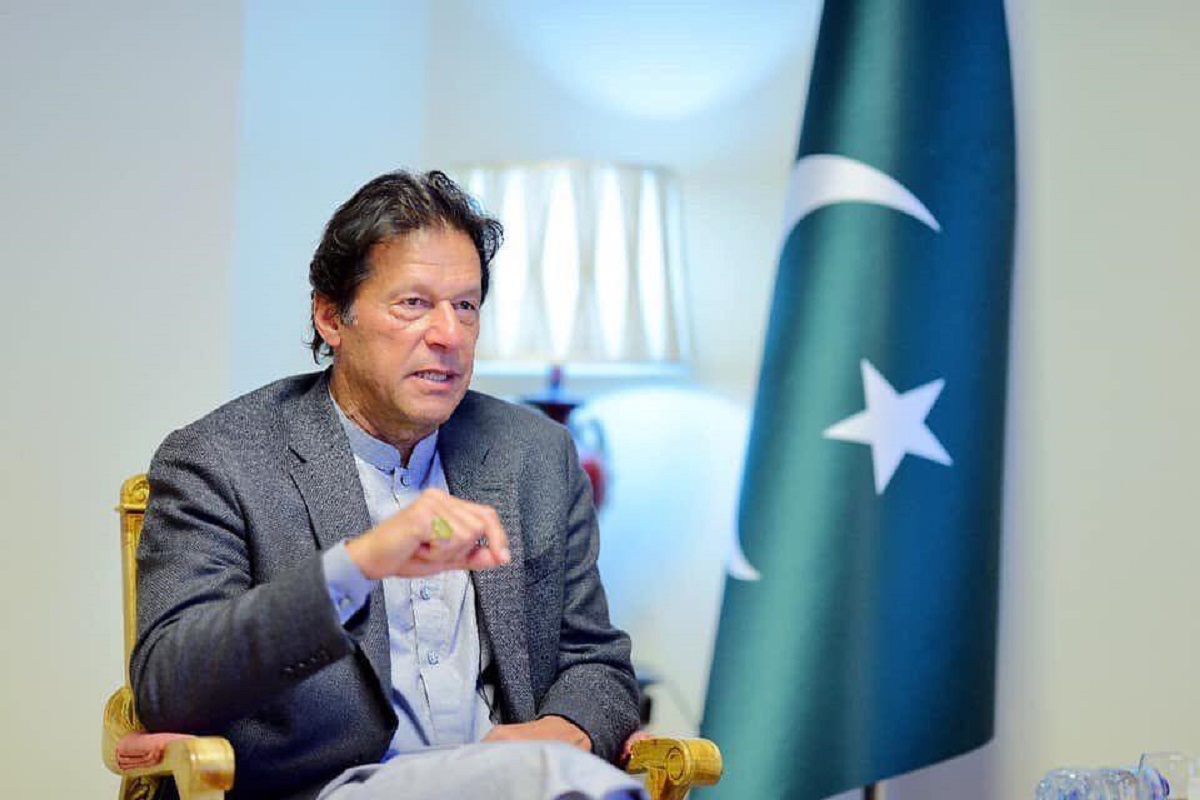Iran rejects Macron’s accusation of involvement in Ukraine conflict
Iran has rejected French President Emmanuel Macron's remarks that Russia has used Iranian military equipment against Ukraine.
The sequence of events left Imran Khan isolated and prone to attack from media, political circles in Pakistan and the international community.

Pakistan Prime Minister Imran Khan (Facebook photo)
Pakistan’s Prime Minister Imran Khan would have little to remember or cherish about his 2-day visit to Russia which concluded on February 24.
The Pak cricketer-turned-politician who had arrived in Russia on February 23 with hopes of expanding bilateral ties and cooperation in the energy sector was caught on the wrong foot when several questions were raised in Pakistani and global media over the timing of his visit. Just before the visit, a statement from Pakistan’s ambassador in Ukraine, Noel Israel Khokhar proved to be a diplomatic embarrassment for the country.
Advertisement
After his meeting with Ukraine’s First Deputy Foreign Minister Emine Dzheppar on February 21, Khokhar assured Pakistan’s support for Ukraine’s sovereignty and territorial integrity. The assertion which was viewed as opposing Russia was followed by a visit by his Prime Minister to Russia two days later, that too in the middle of the crisis.
Advertisement
Moreover, the domestic opposition to the visit remained on full public display during the last few days. Other than sending confusing signals globally, Imran Khan ended up irking media and political observers at home.
Some leaders belonging to his own political party, Pakistan Tehreek-e-Insaf (PTI) were baffled as Imran chose a time when the opposition parties were gearing up for a no-confidence motion against his government in the National Assembly.
Moreover, the lack of any visible concern for the deepening economic crisis in the country added to the woes of government leaders and officials who were left behind to explain the rationale behind visiting a country engaged in conflict.
Several analysts had warned about the pitfalls of visiting Moscow as Pakistan looks towards IMF for economic aid while Russia is crisis-bound to oblige Pakistan.
Considering the outcome of the visit, the warnings and predictions did not prove to be wrong. The separate press releases issued by the two sides after the visit did not mention the signing of any agreement or even a Memorandum of Understanding.
Moreover, despite repeatedly raising bilateral issues involving its larger neighbour India prior to the visit, Imran could not manage to attract Russian leadership’s attention on the same. In addition to it, a planned joint press conference was called off.
After openly sharing his feeling of excitement on visiting Moscow in the midst of conflict, Imran had to conclude the visit by expressing regret over the situation developing between Russia and Ukraine.
A communique issued after the meeting stated that PM Khan stressed that conflict was not in anyone’s interest and that developing countries were always hardest hit economically in case of conflict.
The overall outcome was in stark contrast to the Pakistani leader’s expectations as he was hoping to push for the construction of a long-delayed PakistanStream Gas Pipeline to be built in collaboration with Russian companies part from some small agreements.
The sequence of events left Imran Khan isolated and prone to attack from media, political circles in Pakistan and the international community.
Advertisement